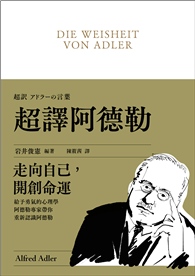In this book, Dr. Robert Edwards brings a fresh, mathematical perspective to the Voynich manuscript and sets out a strategy whereby the interested reader could extract meaning from the seemingly impenetrable symbols . . . if meaning is there to be found. The Voynich manuscript has been described as the most mysterious document in the world. In 1637, a Bohemian scholar sent a mysterious manuscript to the celebrated professor Athanasius Kircher in Rome. Kircher promised to decipher it when the mood took him. He never did. Later, antiquarian bookseller Wilfrid Voynich claimed that he had discovered it in 1912 in a castle in Europe.
- Contains hundreds of bizarre illustrations that seem to represent plants, stars, animals, zodiac signs, strange receptacles, and naked women in pools and streams of green water.
- Throughout its over 200 pages are strings of glyphs or symbols that look like words; but the symbols do not belong to any known living or extinct languages.
- No one knows what these symbols mean--or even whether they mean anything, though hundreds of scholars have tried to decipher them for 500 years.
- Today, all that we know for sure is that the parchment probably dates from the early 15th century.
| FindBook |
有 1 項符合
Voynich Reconsidered: The Most Mysterious Manuscript in the World的圖書 |
 |
Voynich Reconsidered: The Most Mysterious Manuscript in the World 作者:Edwards 出版社:Schiffer Publishing 出版日期:2024-08-28 語言:英文 規格:精裝 / 336頁 / 普通級/ 初版 |
| 圖書館借閱 |
| 國家圖書館 | 全國圖書書目資訊網 | 國立公共資訊圖書館 | 電子書服務平台 | MetaCat 跨館整合查詢 |
| 臺北市立圖書館 | 新北市立圖書館 | 基隆市公共圖書館 | 桃園市立圖書館 | 新竹縣公共圖書館 |
| 苗栗縣立圖書館 | 臺中市立圖書館 | 彰化縣公共圖書館 | 南投縣文化局 | 雲林縣公共圖書館 |
| 嘉義縣圖書館 | 臺南市立圖書館 | 高雄市立圖書館 | 屏東縣公共圖書館 | 宜蘭縣公共圖書館 |
| 花蓮縣文化局 | 臺東縣文化處 |
|
|
圖書介紹 - 資料來源:博客來 評分:
圖書名稱:Voynich Reconsidered: The Most Mysterious Manuscript in the World
內容簡介
|











